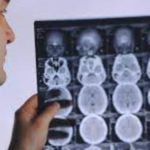How Does Depression and Anxiety Cause Memory Loss

Introduction
Have you been wondering, How does Depression and Anxiety cause memory loss? Depression and anxiety are common mental health disorders that affect millions of people worldwide. These conditions can have a significant impact on a person’s cognitive abilities, including their memory. Many people who suffer from depression or anxiety often report issues with memory loss, which can have a negative impact on their overall quality of life. In this article, we will explore the relationship between depression, anxiety, and memory loss, including the causes and potential treatments for these conditions.
Understanding Depression and Anxiety
Before delving into the relationship between depression, anxiety, and memory loss, it is essential to understand what these conditions are and how they affect the brain. Depression is a mood disorder that can cause feelings of sadness, hopelessness, and helplessness. Anxiety is a condition that causes excessive worry and fear about everyday situations. Both conditions can lead to physical symptoms, such as fatigue, insomnia, and changes in appetite.
The Impact of Depression and Anxiety on Memory
Memory loss is a common symptom of depression and anxiety. Many people who suffer from these conditions report difficulty remembering things like appointments, conversations, and even the names of familiar people. Some people may also experience trouble concentrating, which can further impact their memory retention.
Research has shown that depression and anxiety can cause changes in the brain that lead to memory impairment. Specifically, depression has been linked to decreased activity in the hippocampus, a part of the brain that is crucial for memory formation. Anxiety, on the other hand, can cause overactivity in the amygdala, another part of the brain that plays a role in memory processing.
Unlock Your Brain’s Potential with Neurodrine: The All-Natural Way to Boost Mental Clarity
How Depression and Anxiety Affect Brain Chemistry
Depression and anxiety can also impact the levels of certain neurotransmitters in the brain, which can further contribute to memory loss. For example, low levels of serotonin, a neurotransmitter that regulates mood, have been linked to memory impairment. Similarly, high levels of cortisol, a stress hormone that is released in response to anxiety and depression, can damage the hippocampus and impair memory formation.
Depression and anxiety can cause memory loss by altering brain chemistry. Here are some ways in which these mental health conditions can affect the brain:
- Imbalance of neurotransmitters: Depression and anxiety are associated with an imbalance of neurotransmitters, such as serotonin, dopamine, and norepinephrine. These neurotransmitters are essential for transmitting signals between brain cells and play a crucial role in regulating mood, cognition, and memory.
- Damage to the hippocampus: Chronic stress, which is often associated with depression and anxiety, can lead to damage to the hippocampus. The hippocampus is a brain region involved in memory consolidation and retrieval.
- Inflammation: Depression and anxiety are linked to increased inflammation in the brain, which can impair cognitive function, including memory.
- Disrupted sleep: Depression and anxiety can also disrupt sleep, which is essential for memory consolidation. Sleep deprivation or poor-quality sleep can impair memory formation and recall.
Overall, depression and anxiety can affect brain chemistry in ways that can lead to memory loss. Seeking treatment for these conditions can help to alleviate symptoms and improve cognitive function.
Treating Depression and Anxiety-Related Memory Loss

The good news is that memory loss related to depression and anxiety can often be treated. The first step is to seek help for the underlying condition. Talk therapy, medication, and lifestyle changes such as exercise and meditation can all be effective in treating depression and anxiety.
In addition to treating the underlying condition, there are also specific memory training techniques that can be used to improve memory retention. These techniques can include things like mnemonic devices, repetition, and visualization exercises. Cognitive-behavioral therapy, a form of talk therapy that helps people identify and change negative thought patterns, can also be helpful in improving memory.
Unlock Your Brain’s Potential with Neurodrine: The All-Natural Way to Boost Mental Clarity
Neurotransmitters and Memory
Neurotransmitters play a vital role in memory processes. These chemicals are responsible for transmitting signals between neurons, which are the building blocks of the brain. Several neurotransmitters, such as acetylcholine, dopamine, and norepinephrine, have been found to be critical in the formation and retrieval of memories. Acetylcholine, in particular, is essential for the formation of new memories and is involved in the consolidation of long-term memories.
Dopamine and norepinephrine are also involved in memory processes, and their levels can affect attention, motivation, and emotional responses, which can influence memory formation and retrieval. Imbalances in neurotransmitters can lead to memory impairments, and some medications used to treat memory disorders target specific neurotransmitter systems.
Overall, the complex interplay of neurotransmitters in the brain is crucial for memory function, and a better understanding of these processes can lead to new treatments for memory disorders.
Stress and Memory
Depression and anxiety are often associated with memory loss, and there are several ways in which stress can impact our ability to remember things. Here are some key points:
- Stress hormones, such as cortisol, can interfere with the way our brain processes and stores memories.
- Chronic stress can lead to changes in the structure of the brain, particularly in the hippocampus, which is a key area for memory formation.
- People with depression and anxiety may be more likely to experience “rumination,” or repetitive negative thoughts, which can consume mental resources and make it harder to remember new information.
- Sleep disturbances, which are common in people with depression and anxiety, can also impair memory consolidation.
- Depression and anxiety can affect motivation and focus, making it harder to pay attention to and retain information.
Overall, it’s clear that there are many complex ways in which depression and anxiety can impact memory function. If you’re experiencing memory difficulties, it’s important to talk to your doctor or a mental health professional to get a proper diagnosis and treatment.
Brain Structure and Function
The brain is a complex and intricate organ that is responsible for controlling many of the body’s functions and behaviors. It is composed of different structures that work together to process information, regulate emotions, and control movement. The brain can be divided into different regions, each with its own specific functions.
For example, the frontal lobe is responsible for executive functions such as decision-making and planning, while the occipital lobe is responsible for processing visual information. Additionally, the brain is made up of different types of cells, including neurons and glial cells, which work together to transmit and process information. Neurons communicate with one another through synapses, which are specialized connections between cells.
The structure and function of the brain are intimately intertwined, and understanding the way that different parts of the brain work together can provide valuable insights into how the brain controls behavior and cognition.
Treatment Options for Depression, Anxiety, and Memory Loss
Treatment options for depression, anxiety, and memory loss depend on the severity and underlying causes of each condition. Here are some common approaches:
- Medications: Antidepressants, anti-anxiety medications, and other psychiatric drugs can help to alleviate symptoms of depression and anxiety, which may in turn improve memory function.
- Therapy: Talk therapy, such as cognitive behavioral therapy (CBT), can be effective in treating depression and anxiety by helping individuals to change negative thought patterns and behaviors. Therapy can also help to reduce stress and improve coping skills, which may improve memory function.
- Lifestyle changes: Simple lifestyle changes, such as regular exercise, a healthy diet, and good sleep habits, can be beneficial for both depression and memory function. Meditation and other relaxation techniques may also help to reduce stress and improve mood and memory.
- Memory training: Certain types of cognitive training, such as memory training exercises, may help to improve memory function in individuals with depression or anxiety.
- Treating underlying medical conditions: Certain medical conditions, such as thyroid disorders or vitamin deficiencies, may contribute to depression, anxiety, or memory loss. Treating these underlying conditions may help to improve symptoms.
Overall, treatment for depression, anxiety, and memory loss is often multifaceted and may require a combination of approaches. It’s important to work with a healthcare professional to develop a personalized treatment plan that addresses your individual needs and concerns.
Unlock Your Brain’s Potential with Neurodrine: The All-Natural Way to Boost Mental Clarity
Frequently Asked Questions
Q: Can depression and anxiety cause permanent memory loss?
A: While depression and anxiety can have a significant impact on memory and cognitive function, with proper treatment and management, these symptoms can often be improved. In most cases, memory problems associated with depression and anxiety are not permanent.
Q: How long does it take for memory to improve after treating depression and anxiety?
A: The length of time it takes for memory to improve after treating depression and anxiety can vary depending on the individual and the severity of their symptoms. With proper treatment and management, many individuals can begin to see improvement in their memory and cognitive function within a few weeks or months.
Q: Can medication for depression and anxiety improve memory?
A: Some medications used to treat depression and anxiety, such as antidepressants, can help to regulate neurotransmitters in the brain, which can improve memory and cognitive function.
Q: Are there any natural remedies for managing depression, anxiety, and memory loss?
A: Some natural remedies, such as exercise, mindfulness, and a healthy diet, can help to manage symptoms of depression, anxiety, and memory loss. However, it’s important to speak with a healthcare professional before trying any new remedies or supplements.
Q: What should I do if I’m experiencing symptoms of depression, anxiety, or memory loss?
A: If you’re experiencing symptoms of depression, anxiety, or memory loss, it’s essential to seek help from a mental health professional. A therapist or psychiatrist can provide a diagnosis and create a treatment plan that is tailored to your specific needs.
How Does Depression and Anxiety Cause Memory Loss Conclusion
In conclusion, depression and anxiety can have significant impacts on memory function. Stress hormones, changes in brain structure, sleep disturbances, and cognitive factors such as rumination and lack of focus can all contribute to memory difficulties in individuals with these conditions. It’s important to recognize that memory loss can be a symptom of depression and anxiety and to seek help from a healthcare professional if you’re experiencing these issues.
Treatment options may include medications, therapy, lifestyle changes, memory training, and addressing underlying medical conditions. With proper treatment and management, individuals with depression and anxiety can often improve their memory function and quality of life. It’s crucial to prioritize mental health and seek the support and resources needed to maintain a healthy mind and body.



